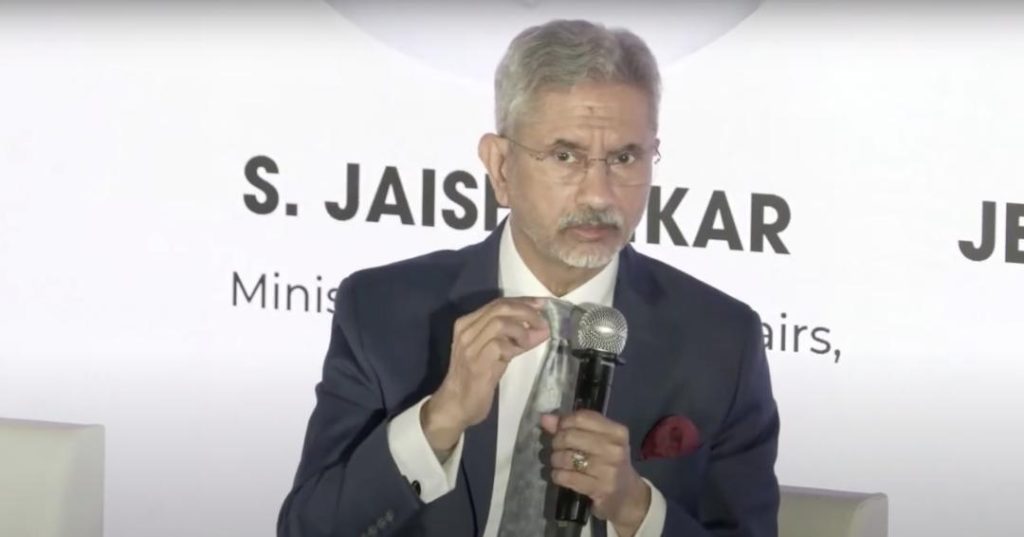
Unrealistic for outsiders to insert themselves: India on Israel-Iran war
The world is abuzz with tensions between Israel and Iran, with both countries engaged in a war of words and military actions. The situation is precarious, and the international community is watching with bated breath as the two countries edge closer to a full-blown conflict. In the midst of this crisis, India’s External Affairs Minister S Jaishankar has weighed in on the issue, offering a cautious and measured approach.
When asked about India’s role in de-escalating the tensions between Israel and Iran, Jaishankar was characteristically diplomatic. “We are a country that has good relations with both Israel and Iran,” he said. “We issued a statement…but ultimately it is for the parties involved to make up their minds. It’s unrealistic for someone outside to insert themselves or to offer to do something if they aren’t prepared for it.”
Jaishankar’s comments are a reflection of India’s long-standing policy of maintaining good relations with all countries, regardless of their political or ideological orientation. India has traditionally taken a neutral stance in international conflicts, preferring to focus on its own economic and strategic interests rather than getting embroiled in the internal affairs of other nations.
India’s approach is pragmatic and realistic, and it is a far cry from the interventionist policies pursued by some Western countries. Jaishankar’s comments are a rebuke to those who would seek to insert themselves into the conflict, offering solutions or mediation without being prepared for the consequences.
The situation between Israel and Iran is complex and multifaceted, with both countries having legitimate grievances and concerns. Israel, of course, has long been wary of Iran’s nuclear ambitions and its support for terrorist organizations in the region. Iran, on the other hand, sees Israel as a colonialist power that has occupied Palestinian territory for decades and has a long history of military aggression.
Given these deep-seated animosities, it is unrealistic to expect outsiders to intervene and resolve the conflict. The parties involved need to engage in a dialogue and negotiate a peaceful resolution, rather than relying on external mediators or military intervention.
India’s approach is also reflective of its own experiences with conflict and diplomacy. India has a long history of dealing with its own internal conflicts, including the Indo-Pakistani wars and the Kashmir issue. The country has learned the hard way that external interference can often exacerbate rather than resolve conflicts, and that the best way to achieve lasting peace is through dialogue and negotiation.
Jaishankar’s comments have been widely praised in India and abroad, with many experts and diplomats viewing them as a model for responsible and pragmatic diplomacy. In a world where the United States and other Western countries are increasingly intervening in the internal affairs of other nations, India’s approach is a refreshing change of pace.
Of course, not everyone agrees with Jaishankar’s assessment. Some have criticized India for not doing enough to address the crisis, and for not taking a more proactive role in mediating a peaceful resolution. But Jaishankar’s comments are a reminder that, in the end, it is up to the parties involved to make up their minds and find a solution that works for them.
In conclusion, Jaishankar’s comments on the Israel-Iran war are a timely reminder of the importance of realism and pragmatism in international diplomacy. It is unrealistic for outsiders to insert themselves into conflicts that are not their own, and it is ultimately up to the parties involved to find a peaceful resolution.
As India continues to navigate the complex and volatile landscape of international relations, it is heartening to see that the country is committed to a policy of responsible and pragmatic diplomacy. By staying out of conflicts that are not its own and focusing on its own economic and strategic interests, India is setting a positive example for other countries to follow.
Source:






